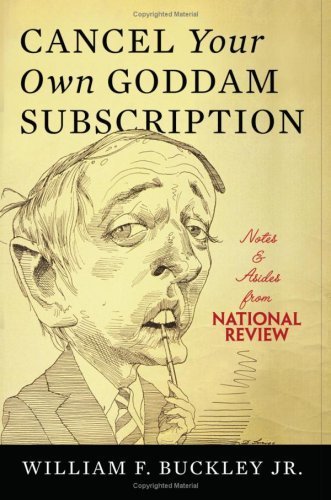What do you think?
Rate this book


Who knew that William F. Buckley Jr., the quintessential conservative, invented the blog decades before the World Wide Web came into existence? National Review, like nearly all magazines, has always published letters from readers. In 1967 the magazine decided that certain letters merited different treatment, and Buckley, the editor, began a column called "Notes & Asides," in which he personally answered the most notable and outrageous letters.
The selections in this book, culled from four decades of these columns, include exchanges with such figures as Ronald Reagan, Eric Sevareid, Richard Nixon, A. M. Rosenthal, Auberon Waugh, John Kenneth Galbraith, and Arthur Schlesinger Jr. There are also hilarious exchanges with ordinary readers, as well as letters from Buckley to various organizations and government agencies.
Unknown Binding
First published January 1, 2007